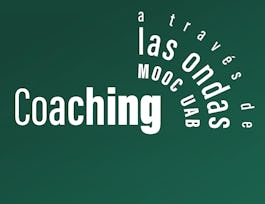Coaching can inspire and motivate people to learn, change, and be effective leaders, among other roles in life. Although most attempts are “coaching for compliance” (coaching someone to your wishes or expectations), decades of behavioral and neuroscience research show us that “coaching with compassion” (coaching someone to their dreams and desires) is more effective.


Conversations That Inspire: Coaching Learning, Leadership and Change
This course is part of Inspired Leadership Specialization
Taught in English
Some content may not be translated



Instructors: Ellen VanOosten, PhD
37,812 already enrolled
Included with 
Course
(328 reviews)
98%
Skills you'll gain
Details to know

Add to your LinkedIn profile
Course
(328 reviews)
98%
See how employees at top companies are mastering in-demand skills

Build your subject-matter expertise
- Learn new concepts from industry experts
- Gain a foundational understanding of a subject or tool
- Develop job-relevant skills with hands-on projects
- Earn a shareable career certificate


Earn a career certificate
Add this credential to your LinkedIn profile, resume, or CV
Share it on social media and in your performance review

There are 6 modules in this course
The best coaches develop resonant relationships, which involve the experience of hope and compassion and the arousal of meaning. We explore how effective coaches inspire others, and use an approach based on compassion rather than compliance to promote positive, enduring change in their coachees. We then turn to Intentional Change Theory (ICT) as a model of sustained, desired change at all levels of human endeavor; detailing the five discovery phases that comprise ICT. Finally, we explore the Positive and Negative Emotional Attractors (PEA and NEA), their relationship to the Sympathetic and Parasympathetic Nervous Systems (SNS and PNS), and how arousal of either of these systems can deferentially lead to either feelings of negativity and fear, or a focus on one's strengths and the excitement of experimenting with something new.
What's included
4 videos6 readings2 discussion prompts
Chronic stress without regular and period experiences of renewal is non-sustainable for performance. We further examine the physiology of the PNS and SNS; including the relationship between stress and the activation of the SNS, and renewal and the activation of the PNS, including implications for hormonal and cardio-vascular activity in the body. We then turn to our neuroscience-based study of coaching; outlining the contagious effect of emotions, and the relationship between the brain's independent and suppresive Task Positive Network (TPN) and Default Mode Network, and how each relates to problem solving/analytical tasks and social tasks/openness to people and experiences. We end this week by outlining the ethical dimensions of coaching: the essentials of trust and environmental safety, awareness of boundaries, and ensuring that the coaching process flows from the coachee themselves.
What's included
3 videos5 readings1 peer review2 discussion prompts
The ideal self is centered on autonomous motivation: what a person wants to do, and results in sustained, desired change. Conversely, the ought self is based on controlled motivation: what a person feels they must do based on the standards of others. The ideal self comprises hope, core identity, and an image of a desired future, and is fueled by optimism and self-efficacy. We then turn to the two forms of empathy: empathy with the head (a form of conceptual understanding and cognitive processing which implicates both the TPN and DMN) and empathy with the heart (genuine emphatic concern, which engages the DMN alone); with our focus on the need to develop emotional self-awareness in order to serve others, while appropriately balancing both forms of empathy as the coaching situation demands. Lastly, we explore the notion of genuine listening in a coaching relationship (as opposed to mere 'hearing' the other person speak), and outline a case for "listening beyond the words": giving our full attention to the other person to establish what lies beyond the words, and what meaning we can derive from what that other person is saying.
What's included
3 videos5 readings1 peer review1 discussion prompt
There is an optimal balance between time spent in the PEA and time spent in the NEA. Too much time in the PEA may result in over-optimism or complacency; with too much time in the NEA resulting in diminishment or depression. Given that negative emotional experiences tend to be stronger and more palpable, the ratio between time spent in the two emotional states should be skewed toward the PEA - at around 3-6:1. Establishing the real self involves mindful awareness, which itself demands soliciting accurate feedback from others; so as to establish a personal balance sheet cataloguing the strengths one can leverage within themselves and the shortcomings they may seek to address. Next, we explore the nature and role of social identity groups: how they support and enhance emotional contagion, and may facilitate the development of a larger or noble purpose in one's Ideal Self. Lastly, we detail planning and experimentation with new behaviors to promote and sustain new learning and growth on the part of coachees.
What's included
3 videos3 readings1 peer review1 discussion prompt
Coaching can be leveraged to help organizations develop and retain their best talent. We outline the positive workplace results that arise in organizations which employ coaching with compassion approaches to coaching, and not traditional coaching for compliance. Moreover, peer coaching promotes an intimate involvement among members of an organization; strengthening social bonds outside the organization and professional bonds within it, and promoting a genuine culture of coaching. It also provides a cost-effective, long-term and sustainable alternative to conventional coaching modalities.
What's included
5 videos3 readings1 peer review1 discussion prompt
What's included
1 reading2 peer reviews
Instructors



Offered by
Recommended if you're interested in Leadership and Management

Case Western Reserve University

University of California, Davis

Dartmouth College

Universitat Autònoma de Barcelona
Why people choose Coursera for their career




Learner reviews
Showing 3 of 328
328 reviews
- 5 stars
80.18%
- 4 stars
15.54%
- 3 stars
3.04%
- 2 stars
0%
- 1 star
1.21%
New to Leadership and Management? Start here.

Open new doors with Coursera Plus
Unlimited access to 7,000+ world-class courses, hands-on projects, and job-ready certificate programs - all included in your subscription
Advance your career with an online degree
Earn a degree from world-class universities - 100% online
Join over 3,400 global companies that choose Coursera for Business
Upskill your employees to excel in the digital economy
Frequently asked questions
Access to lectures and assignments depends on your type of enrollment. If you take a course in audit mode, you will be able to see most course materials for free. To access graded assignments and to earn a Certificate, you will need to purchase the Certificate experience, during or after your audit. If you don't see the audit option:
The course may not offer an audit option. You can try a Free Trial instead, or apply for Financial Aid.
The course may offer 'Full Course, No Certificate' instead. This option lets you see all course materials, submit required assessments, and get a final grade. This also means that you will not be able to purchase a Certificate experience.
When you enroll in the course, you get access to all of the courses in the Specialization, and you earn a certificate when you complete the work. Your electronic Certificate will be added to your Accomplishments page - from there, you can print your Certificate or add it to your LinkedIn profile. If you only want to read and view the course content, you can audit the course for free.
If you subscribed, you get a 7-day free trial during which you can cancel at no penalty. After that, we don’t give refunds, but you can cancel your subscription at any time. See our full refund policy.

